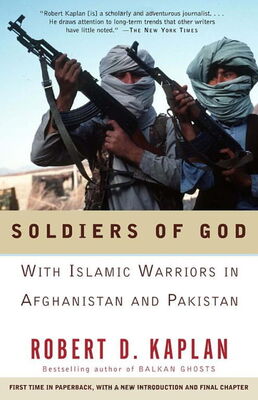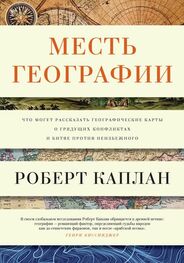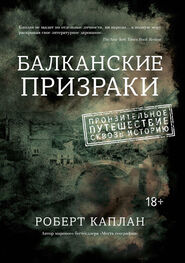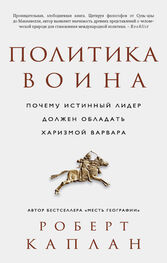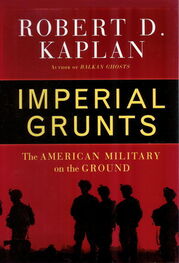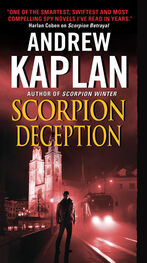It was a democratically elected Prime Minister, Benazir Bhutto, along with her Interior Minister, the retired general Naseerullah Babar, who conceived of the Taliban as a solution to Pakistan’s problem. Through the ISI the Bhutto government began to provide the Taliban with money, fuel, subsidized wheat, vehicles, weapons, and volunteers from Pakistan’s madrassas. It also linked Afghanistan to Pakistan’s telephone grid.
But the Taliban won’t play the role of puppet. And Afghanistan’s religious extremism is accelerating Pakistan’s, through the network of madrassas. Furthermore, the future of the Taliban themselves is uncertain. They have restored security in Afghanistan by disarming much of the countryside, but they have built no institutions to sustain their rule… and 70 percent of working-age Afghans are jobless. Just as the Taliban rose and spread like Islam itself, they could also descend into disorderly power struggles, much like the medieval Muslim rulers who followed the prophet Mohammed.
Ultimately, the Taliban are tribal Pashtoons from the southern and eastern Afghan borderlands… an anarchic mountain people who have ground up one foreign invader after another, defying attempts by the Moguls, the Sikhs, the British, the Soviets, and the Pakistanis to control them. As Mahauddin, a white-robed Pashtoon cleric from southwestern Afghanistan, told me in Karzai’s home, “We are thirsty for a pure Afghan government, a loyajirga [grand council of tribal chiefs] without Russia or the ISI to influence us.”
In fact, with mujahidin field commanders no longer getting CIA money and weapons through the ISI, power in Afghanistan is inexorably gravitating back to the tribal heads. For example, commanders of Popolzai descent who were loyal to Hekmatyar and the other mujahidin party leaders have returned to Karzai’s fold, which is why he is so troublesome to the Taliban and their Pakistani backers… and why Quetta is dangerous for Karzai.
Several hundred miles north of Quetta lies Peshawar, at the eastern end of the Khyber Pass… the fabled gateway connecting Central Asia to the Subcontinent, which in our day means connecting Afghanistan to Pakistan. Here the religious disputes that run parallel to tribal divides come more clearly into focus. In the late 1970s Peshawar went from being a quaint backwater whose bazaars were interspersed with stately lawns and red-brick mansions in Anglo-Indian Gothic style to becoming a geopolitical fault line. Afghan refugees poured through the Khyber Pass by the millions, escaping the Soviet invasion. At the same time, the Iranian revolution closed off an important route for drug smugglers, who began transporting locally produced heroin eastward through the Khyber Pass and down to the port of Karachi. Peshawar’s population doubled to a million. Throughout the 1980s war, crime, and urbanization generated an intolerant religiosity.
Returning to Peshawar for the first time in more than a decade, I found an even more crowded, poor, and polluted city than the one I remembered. It was also more Afghan. In the 1980s Peshawar’s Afghan population consisted of refugees from the rural hinterlands. But from 1992 to 1994, when a civil war among the mujahidin destroyed Kabul with mortar fire and rocket-propelled grenades, the sophisticated urban-ites of the Afghan capital migrated to Peshawar. Unlike the rural refugees, these people had an exportable cosmopolitan culture, and this added another layer of change to Peshawar. Now there are many more Afghan restaurants and carpet shops and nightclubs for Afghan music… especially owing to the Taliban ban on music in Kabul. There are also many Afghan prostitutes, fairer-skinned and reputed to be more compliant than their Pakistani counterparts. The presence of educated Afghans made me realize that the very element of the population most averse to Taliban rule was now absent from Afghanistan, reducing the likelihood of an uprising.
In the 1980s traveling outside Peshawar into the tribal agencies of the Northwest Frontier Province was easy for journalists, because the Pakistani regime encouraged news coverage of the mujahidin struggle against the Soviets in Afghanistan. This time it took me several days to get a permit to travel from Peshawar into the Orakzai and Kurram tribal agencies, which in recent years have been plagued by communal violence between members of the Sunni and Shia sects of Islam. The permit was valid only provided that I was accompanied by an armed escort of local tribal militia.
The road south and west of Peshawar runs past squalid mud-brick and wattle stalls crowded with bearded and tur-baned Pashtoon men; the women, concealed under burkas, resemble moving tents. The sky is polluted by a greasy haze of black smoke from tire-fed fires, used to bake mud bricks. The odor in each town is a rich mixture of dung, hashish, grilled meat, and diesel oil… and also cordite in Darra Adam Khel, where Pashtoons work at foot-powered lathes producing local copies of Kalashnikovs and other assault rifles.
In one shop, whose glass cases were filled with rifles, pistols, and bullet magazines, I met Haji Mohammed Zaman Khan, a local tribal leader. Haji Zaman wore a bulbous red cloth hat with an ostentatious bow around it… the signature of the Afridi, a branch of the Pashtoons thought to be descended from Greek soldiers of Alexander the Great’s army, which came down the Khyber Pass. Here, as in Quetta, all the stores had been closed in protest against the military government’s plan to tax the smuggling trade. Haji Zaman explained, “The government tries to stop production of opium poppies, our only cash crop. It wants to ban the transport of guns, which will make thousands jobless. Smuggling is the only means of survival we have left. Why doesn’t the government raise money from the corrupt? When we see that the corrupt are being punished, then maybe we will trust the government.”
By “the corrupt,” Zaman meant officials of previous democratic governments who are under investigation for taking billions of dollars in bribes and depositing them in foreign bank accounts. Throughout Baluchistan and the Northwest Frontier, I heard calls for revenge against those officials. No one with whom I spoke voiced any interest in national elections, which are very tentatively scheduled to take place in three years; political analysts in Islamabad call them a dead issue among the masses, though only for now.
Beyond Darra Adam Khel the landscape consisted of naked rock, heat, and haze. High temperatures had come a month early, with 110° common by early May, and there had been no seasonal rains to cool the ground. I saw women in burkas searching for water trickling through otherwise dry gravel beds. Low-walled fortresses of red brick were scarred with graffiti that read, in English and Urdu, LONG LIVE OSAMA BIN LADEN and WE WANT ISLAMIC LAW. Throughout the tribal lands of Pakistan people are naming their newborns Osama. To these people, Bin Laden represents an Islamic David against a global American Goliath. It is the American government’s promotion of Bin Laden as a formidable enemy that helps to give him credibility here. To the poor, he embodies the idea that only strict Islam has the power to vanquish the advancing materialism of the West. In the nearby tribal agency of Waziristan, Pakistani members of the Taliban have been destroying television sets, videos, and other reminders of the West. Bin Laden’s terrorist organization, with operatives on several continents, is both a symptom of and a reaction against globalization.
Parachinar, the largest town in the Kurram tribal agency, was a small market center twelve years ago. Now it is a crowded city of 300,000, characterized by brutal concrete, electricity outages, water shortages, battles over property rights, and terrorism powered by guns that are filtering back into Pakistan from Afghanistan. When I asked the assistant political agent for Kurram, Massoud Urrahma, if military rule had made a difference, he replied dismissively, “Whether the government in Islamabad is military or democratic doesn’t matter. We have no civil law here… only Pashtoon tribal law.”
Читать дальше